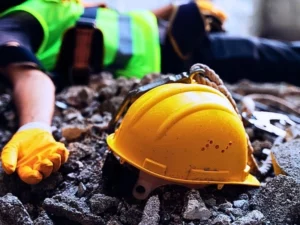Nursing can be a vibrant and rewarding career. Unfortunately, it can also cause permanent disability if a person is injured on the job. Many nurses suffer career-ending traumas every year. Nursing staff are exposed to infectious bacteria and viruses, violent patients, the possibility of contamination with dangerous substances and the ever-present risk of musculoskeletal injury.

A large number of nurses end up as disabled patients in their own facilities. Hospitals are often unconcerned with the suffering of nurses who have been hurt in the line of duty. The injured nurse is not helped, but rather neglected and exploited, as every Chicago workers’ compensation attorney is aware. As the number of nursing injuries continues to rise, employee advocates are drawing attention to the unfair behavior of many employers in hospitals and care facilities.
Back injury is a common hazard
The greatest job hazard for nurses is the possibility of back injury. According to a recent news release published by the U.S. Bureau of Labor Statistics, approximately one out of 50 nurses will suffer a serious back injury on the job each year. For the sake of comparison, only one out of every 150 construction workers is disabled every year by a musculoskeletal injury. Even active duty paramedics and firefighters are no more likely to suffer a back injury than nurses who work with patients every day.
Why is nursing so dangerous?
Nurses face an elevated danger of back injury and other musculoskeletal injury because of the complex set of tasks they must perform on the job. Along with nursing assistants, they are required to transfer, bathe, turn and lift many patients on a regular basis. Patients in American hospitals are steadily becoming more overweight. According to the U.S. Department of Health and Human Services, many of them are severely obese, with a Body Mass Index of 40 or above.
Handling patients with a very high BMI can cause physical damage to nurses, even when they are operating correctly with the help of properly trained assistants. Many hospitals and nursing facilities are suffering from budget shortfalls, causing them to cut the number of registered nurses and certified assistants.
Nurses are often left alone to perform hazardous tasks
If staff numbers are insufficient, a nurse may be required to lift a patient alone without any help. This practice can cause severe spinal injury. No warehouse worker, however strong and fit, would be asked to lift a 350-pound crate alone without assistance. Many nurses must lift 350-pound patients alone. When the nurse is injured and disabled, the hospital is often unwilling to take responsibility for the mishap.
Nursing injuries by the numbers
The U.S. Centers for Disease Control and Prevention recently undertook a study of musculoskeletal nursing injuries and the situations in which they occur. The statistics are disturbing. CDC findings show that many nursing injuries are caused by improper or unsupported handling of obese patients. In some parts of the country, nearly half of hospital patients are obese.
Approximately 12,000 American nurses are hurt badly enough to miss work each year after a lifting trauma on the job, according to CDC figures. Many of these nurses are permanently disabled and cannot return to work. This trend has resulted in a severe shortage of nurses, with as many as 300,000 skilled nursing posts that will be unfilled in a decade if current tendencies continue. The average nurse working during the year 2014 was 45 years of age. This number has risen steadily since the 1990s.
Many hospitals are unconcerned with the safety of nurses
In many cases, hospitals are not concerned with the safety of nurses who handle immobile or obese patients. Many nurses have filed complaints about hazardous conditions and found themselves suspended or fired. Some large hospitals even choose to bypass the correct procedures for workers’ compensation. When a nurse is injured after lifting a patient, the employer rejects the claim for benefits and disqualifies the nurse on a technicality. Many families have been destroyed by these unethical practices, as a Chicago workers’ compensation attorney can confirm.
Firing after severe injuries
Some nurses are simply fired after a severe injury with no chance to appeal. According to a recent report on nursing injuries by National Public Radio, a nurse in North Carolina was permanently disabled after helping an obese patient transfer from a stretcher after major surgery. When the nurse sought surgery to restore her walking and standing ability, she was fired by her hospital. Her supervisor brought her notice of termination while she was lying in her hospital room, recovering from the surgery. She has been unable to work ever since.
What can nurses do to defend their rights?
In the hostile environment of many nursing facilities and hospitals, nurses must take action to protect their own rights to safety and fair compensation. Every nurse should know the steps to take after a lifting injury on the job. These steps include all of the following:
- Seek emergency treatment immediately.
- Do not attempt to continue working.
- Obtain a workers’ compensation form and fill it out with the relevant information.
- Take notes on all further circumstances surrounding the accident.
- Get written testimony from co-workers and colleagues who witnessed the injury.
- Speak with doctors and seek a second opinion on the nature of the injury if necessary.
By following all of these steps, nurses can build a stronger case as they fight for compensation.
Nursing injuries can be life-changing. Disabled workers have the right to proper care and benefits. Nurses who have been hurt on the job should think about contacting a Chicago workers’ compensation attorney.







